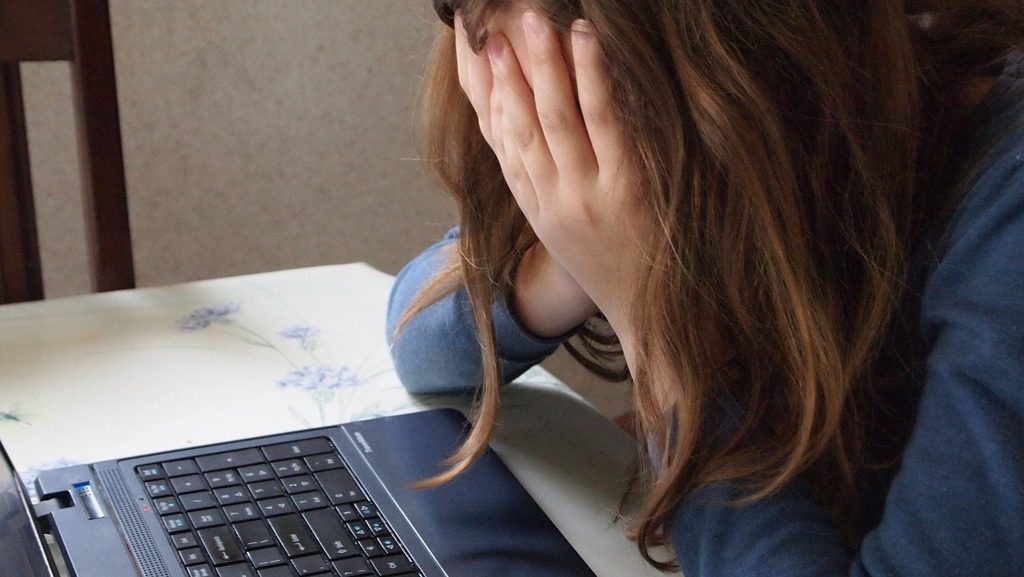A new study, published in the Journal of Child and Family Studies, takes a participatory action research approach to explore the definition of bullying and the effects of childhood bullying on the lived experiences of young adults. The result of the mixed-method inquiry suggests childhood bullying may have lasting adverse effects on psychological well-being, including issues with body image, eating disorders, relationships, and trust issues.
“Participants suffered as children and as young adults with depression, anxiety, low self-esteem, and eating disorders that they attributed directly to their experiences with bullying in childhood,” Ellen deLara, a researcher and professor in social work at Syracuse University, explains. “The ability to trust others in adult friendships and intimate relationships was significantly affected.”

Current literature suggests that approximately 50% of all school students in the U.S. are involved in bullying, and for LGBTQ youth, this number is reported to be as high as 92%. Previous research has linked childhood bullying to poor physical health, depression, psychosis, and increased suicidality in adulthood. However, qualitative studies are needed to understand the lived experiences of young adults surviving childhood bullying experiences during the transition to adulthood.
In the current study, 72 semi-structured interviews were conducted on young adults between the ages of 18-29 who indicated they had experienced bullying between K-12 grade. Participants also completed a researcher created self-report measure (a = 0.916) which explored aspects of childhood bullying. Grounded theory was used to examine the qualitative data. Themes were explored and were similar to those that emerged from survey data, therefore suggesting credibility of the results.
Mental health issues, physiological concerns, and relationship issues emerged as themes in young adult’s lives as a result of childhood bullying experiences. The greatest injury from childhood bullying was seen in relationship impairment and in the ability to trust others.
“Participants suffered as children and as young adults with depression, anxiety, low self-esteem, and eating disorders that they attributed directly to their experiences with bullying in childhood. The ability to trust others in adult friendships and intimate relationships was significantly affected. These outcomes affected aspects of their development and wellbeing,” deLara writes.
The current study also identified a discrepancy between formal definitions of bullying and individual experiences. According to the CDC and U.S. Department of Education bullying can be defined as:
“Any unwanted aggressive behavior by another youth or group of youths who are not siblings or current dating partners that involves an observed or perceived power imbalance and is repeated multiple times or is highly likely to be repeated. Bullying may inflict harm or distress on the targeted youth including physical, psychological, social, or educational harm.”
This definition is different than the way participants in the study conceptualize bullying. DeLara writes:
“The participants defined bullying without reference to chronicity or power. Participants were clear that their experience of being bullied was not contained by the parameters of chronicity or power. When queried further, all said they could unambiguously distinguish between good-natured teasing, unpleasant experiences, and mean-spirited bullying incidents.”
The differences in definition illustrated by current findings highlight an important discrepancy with the potential to lead to a gap in research and application. Anti-bullying program development and policy level work depend on an understanding of what bullying means to maximize the inclusion of all affected by childhood bullying and take appropriate preventative steps.
This study provides a look at the lived experiences of young adults following experiences of bullying in childhood. The findings deliver mounting evidence for the need for improved preventative bullying programs in schools nationwide. Understanding the lived experiences of survivors of childhood bullying can help to inform appropriate definitions and plans to decrease adverse effects resulting from these experiences that affect a significant number of children in the US.
****
deLara, E. W. (2018). Consequences of Childhood Bullying on Mental Health and Relationships for Young Adults. Journal of Child https://rdcu.be/bbgdTd Family Studies, 1-11. (Link)















A Christmas Story – Ralphie Beats Up Bully https://www.youtube.com/watch?v=XvijyBIgazE
That’s how we did it when the world was sane. That movie was 1983.
No doubt that in today’s NWO indoctrination centers posing as schools a kid like Ralphie would get an head evaluation then labelled with something and put on drugs. About 9,000,000 children in America are on psychiatric drugs.
Where is the Journal of Child and Family Studies study on the long term outcome of children drugged in school ??
Perhaps the scariest problem of all is that, when young people are hooked on ADHD medications and tolerance goes up or the supply runs out, they’re rapidly turning to substitutes – like crystal meth.
There has been little research into this issue.
Report comment
“Back when I was a teenager in the 1990s, I was feeling suicidal due to bullying. The world seems to want to all of a sudden come to the rescue of a person once they hear “the s word.” I was flat out lied to by my primary care physician. I was given bloodwork and then I was told I had a chemical imbalance.”
“Fast forward 20+ years to today and I’ve been given over 40 different brain-disabling psychiatric medications in almost every major category”
Read more: Psychiatry Destroyed My Life
Posted by Zant808 » Fri Oct 19, 2018 9:34 am
https://www.psychforums.com/anti-psych/topic209984.html
Report comment
If you can’t stand bullying stay far away from anything labeled “mental health.” A great way to ensure a lifetime of bullying and physical assaults.
I was an idiot to reach out for help. People only pretend to care to exploit others like livestock they want to fatten and eat.
The moral boys and girls is hide your negative emotions and never cry in front of people. Especially guys in white coats. Act tough, never tender, never gentle, never kind. Only the SMI want to love or be loved after all.
Report comment
That is a very sad conclusion!
Report comment